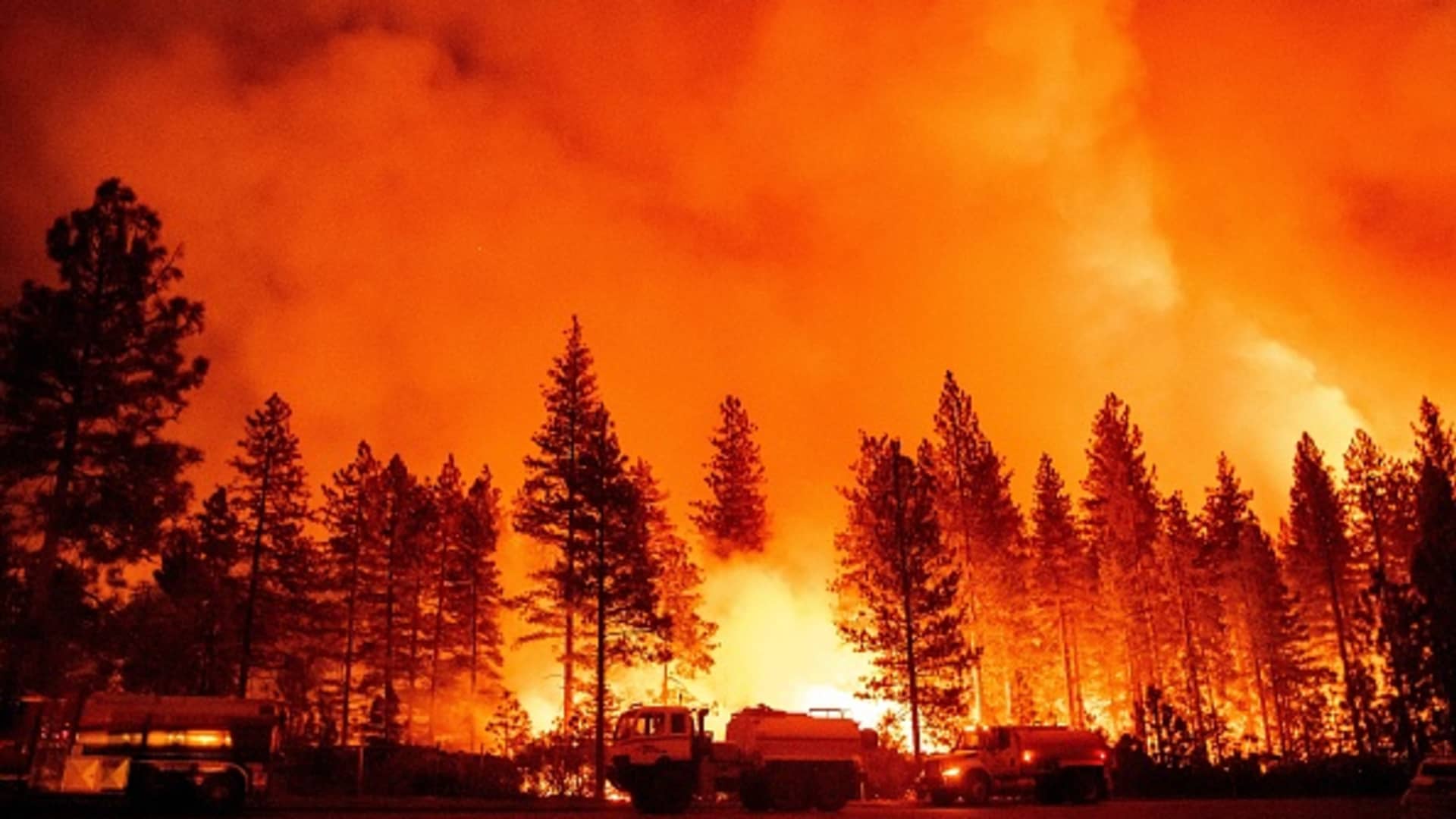Predicting California Wildfire Risk: Reinsurance Startup Kettle

No one can predict the future, but a San Francisco-based startup kettle It looks like you can predict where wildfires are likely to start in California.
That’s a big deal: 8 out of 10 Largest wildfires in California history It has happened in the last 5 years.miserable fire just get worse Because of climate change, accurately predicting their location could help thousands of people prepare in advance.
Kettle, which launched in early 2020, said: We share insights from our models with firefighters, utility companies, government agencies, and the U.S. Forest Service.
But the company mostly uses predictive models in surprising ways. It’s reinsurance. In other words, Kettle provides insurance to insurance companies.
I may just roll my eyes, but the startup’s founder says reinsurance is one of the best ways to maximize social impact.
“We cannot focus solely on climate change mitigation and try to prevent this ongoing progression,” said Kettle co-founder and COO. Nathaniel Manning told CNBC Make It. “It also needs to be heavily invested in so that society buffers against it. Insurance plays a key role there.”
The Startup Is Not Alone: Like Multiple Other AI-Centric Companies Zesty.AI When cape analyticshave built wildfire prediction models in recent years, all claiming relatively comparable accuracy.
But Kettle’s focus on reinsurance rather than selling software directly to insurers is unique, Manning said.
Here’s why, and how Kettle hopes its predictive model can help.
How Kettle makes predictions
California has become a riskier place to live – and insurance companies know it and aren’t renewing Over 235,000 California Homeowners Insurance In 2019 alone, according to the California Department of Insurance.
According to Kettle data scientist Noam Rosenthal, residents who still have home insurance are probably paying far more in premiums than they did five years ago.
Most reinsurers forecast wildfire risk Manning adds that it uses decades-old techniques that rely on historical data. That’s the problem, he says: “Climate change keeps things changing, so the future can’t be predicted from the past.”
Kettle co-founders Nathaniel Manning (left) and Andrew Engler
Provided by: Kettle
According to a slideshow provided by the company, Kettle’s models analyzed 130 terabytes of data across more than 35 different data sets, from state real estate data to satellite imagery illustrating factors such as temperature, drought, precipitation and wind. to solve this problem.
According to the slideshow, that data will be used to run about 2.25 million simulations of where fires could start and spread in California. This exceeds the approximately 10,000 simulations that other reinsurance models typically run.
The goal of the model is to predict the likelihood that a specific property in California will burn down in a wildfire within the next 12 months.
So far, the results look promising. According to Manning, in 2020, 14 of California’s largest fires—his 98% of the state’s fire damage that year—will rank among the highest-risk areas in the model. Happened in 20%.
Of course, it’s all probabilities.It’s ‘nearly impossible’ to predict exactly where wildfires will start, says Stanford assistant professor Alexandra ConningsStill, she adds, identifying the areas of greatest risk can be “extremely valuable information.”
Choosing to focus on reinsurance
Selling reinsurance may seem like a profit-driven way to tap into potentially life-saving technology.
But if insurers can’t accurately predict the risks, they could end up paying homeowners more money than they can afford after a catastrophe, he said. Janet LewisDirector of Strategic Communications for the Institute for Insurance Information, a non-profit trade association.
In other words, reinsurers benefit large insurers, but they also ensure that they receive the money they owe in the event of a disaster.
Although it is impossible to measure how much a single reinsurer has stabilized premium prices, Kettle’s model suggests that approximately 60,000 homes from 20 different insurers are at least partially Manning says that he has insurance for .
So Kettle may have helped at least some people in low-risk areas to pay lower premiums, and some people in high-risk areas to pay higher premiums.
And while no one wants to pay more, Manning notes that higher insurance premiums could drive people away from building or buying properties in high-risk areas. increase.
It can also encourage existing homeowners to “enhance” their homes. 2020 research From the National Insurance Association.
California wildfires are just the beginning
Manning said he doesn’t know whether firefighters, utility companies, or government agencies have actually used the information Kettle shared.
But while these insights may be useful, Kettle’s main focus remains the insurance industry, says startup data scientist Rosenthal.
“We are in the new normal of increasing wildfire risk in California,” he says. prize.”
Wildfires are just the beginning, Manning said, and he hopes Kettle will eventually model other environmental hazards, such as floods exacerbated by climate change or winds from hurricanes.
say it might be a challenge Max MoritzAdjunct Professor of Wildfire Dynamics at the University of California, Santa Barbara. Natural hazards often behave very differently from each other, and their predictions can be highly dependent on local geography.
Simply put, what works in California may not work anywhere else. “Performance isn’t always going to be that great,” he says Moritz.
But Kettle aims to give it a try, and there are several such projects in active development, says Manning. He declined to provide any concrete plans for when it will launch.
Want to earn more and work less? register For free CNBC Make It: Your Money Virtual Event On December 13th at 12:00 PM ET, learn how to increase your earning power from money gurus like Kevin O’Leary.
Sign up now: Get smart about money and your career with our weekly newsletter
https://www.cnbc.com/2022/11/07/predicting-california-wildfire-risks-reinsurance-startup-kettle.html Predicting California Wildfire Risk: Reinsurance Startup Kettle




